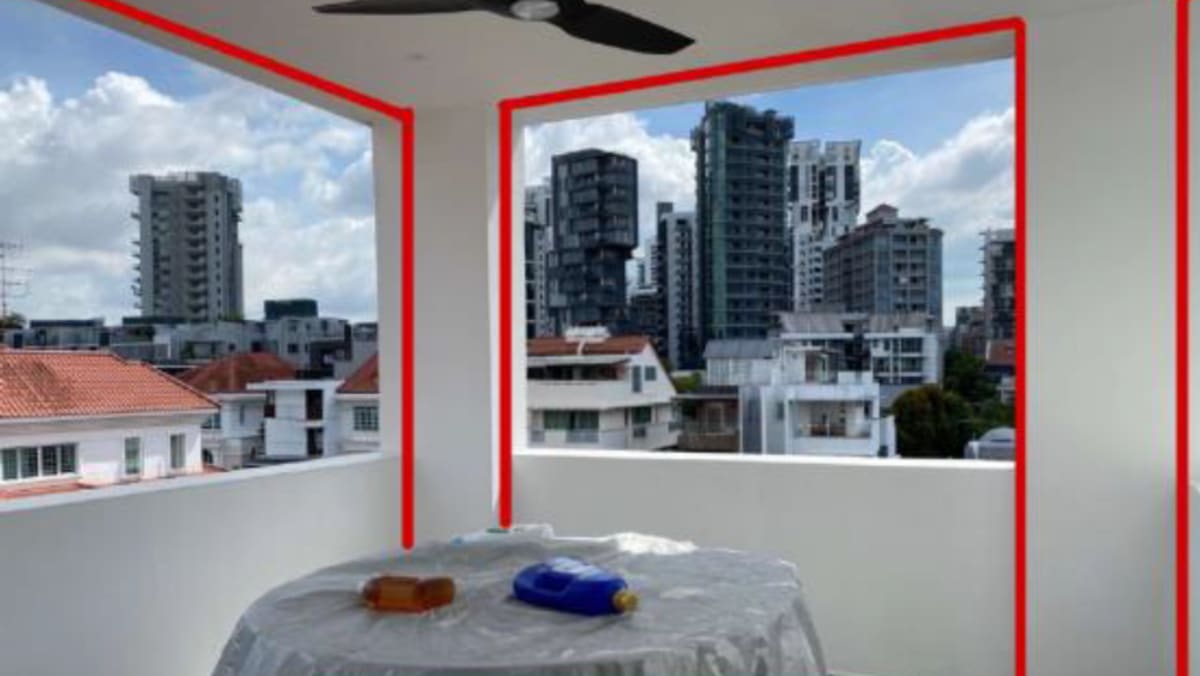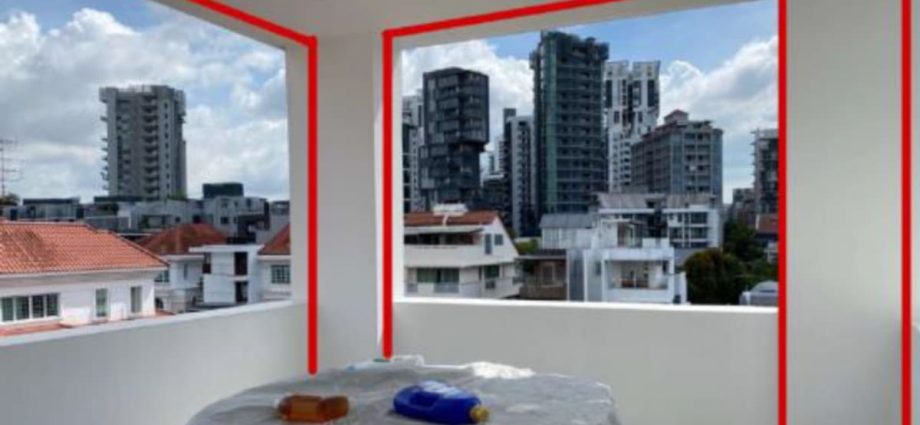
SINGAPORE: A man who wanted to install zip blinds at two balconies of his top-floor unit in Stevens Loft found himself blocked by the management of the condo and took the latter to court to be granted approval.
However, the district court found in favour of the management of the condo near Orchard Road and dismissed his application. The High Court similarly dismissed his application to appeal against the decision in a judgment on Tuesday (Dec 19).
Mr Soo Hoo Khoon Peng is a subsidiary proprietor of a top-floor unit at Stevens Loft, occupying the fourth and fifth floors of the building.
According to the district court judgment, he wanted to install a brand of zip blinds known as Renson Fixscreen at his two balconies.
He sought permission from the management corporation of Stevens Loft, sending a renovation form to the management in late August 2022 asking for approval.
The management responded about two months later, informing that his request had been denied “in view of the uniformity of the building appearance”.
Mr Soo Hoo responded, disputing that installing Fixscreen would result in any issues with uniformity and asserting that he was “concerned with the safety of his children, and wear and tear of his balconies”.
On Mr Soo Hoo’s insistence, solicitors for the condo management responded saying that there was “an issue of appearance” and that the proposed installation would be to common property.
The management of the condo was defended by lawyers Daniel Chen and Enzel Tan from Lee & Lee.
Mounting any structure on common property walls would amount to exclusive use of common property, which requires approval by way of a 90 per cent resolution, the condo’s lawyers said.
They added that any issue of safety could be dealt with by invisible grilles, which was the condo’s standard design for safety barriers at balconies.
When the management of the condo stood by its refusal, Mr Soo Hoo filed an application in court, asking to be allowed to install the zip blinds, and for the management to pay damages of S$2,400 (US$1,810) to him along with interest and costs.
The district judge found that the proposed zip blinds would amount to exclusive use or enjoyment of common property, which would require 90 per cent resolution at a general meeting of subsidiary proprietors.
“The proposed Fixscreen would be attached to load-bearing walls, columns and beams, which are by definition structural elements and therefore fall within the definition of ‘common property’,” said District Judge Sim Mei Ling.
ZIP BLINDS WOULD REPEL INSECTS, PREVENT HARM TO KIDS, SAYS CLAIMANT
Mr Soo Hoo argued that even if installing the zip blinds amounted to exclusive use or enjoyment of common property, a by-law entitled him to install a screen or other device to prevent animals or insects entering his lot, or to prevent harm to children.
Judge Sim accepted that Fixscreen could prevent insects or animals from entering, based on marketing materials produced by Mr Soo Hoo, which advertised its insect-repelling qualities when the blinds are closed.
However, she was “not convinced” that the zip blinds would have the effect of preventing children from jumping or falling over the walls of his balcony.
Mr Soo Hoo’s lawyers, Mr Joseph Tay and Mr Lin Ruizi from Shook Lin & Bok, pointed to the existence of roller blinds, awnings and motorised blinds installed by other subsidiary proprietors to argue that the facade of the building was no longer uniform.
However, Judge Sim said there was only one other unit in Stevens Loft that had a motorised blind installed, and the management said it was taking enforcement action against this.
She found that the defendant did not act unreasonably in withholding its consent to Mr Soo Hoo’s request to install Fixscreen.
When the district court dismissed Mr Soo Hoo’s application, he turned to the High Court for permission to appeal against the decision, but was met with a dead end when the High Court dismissed his bid.

